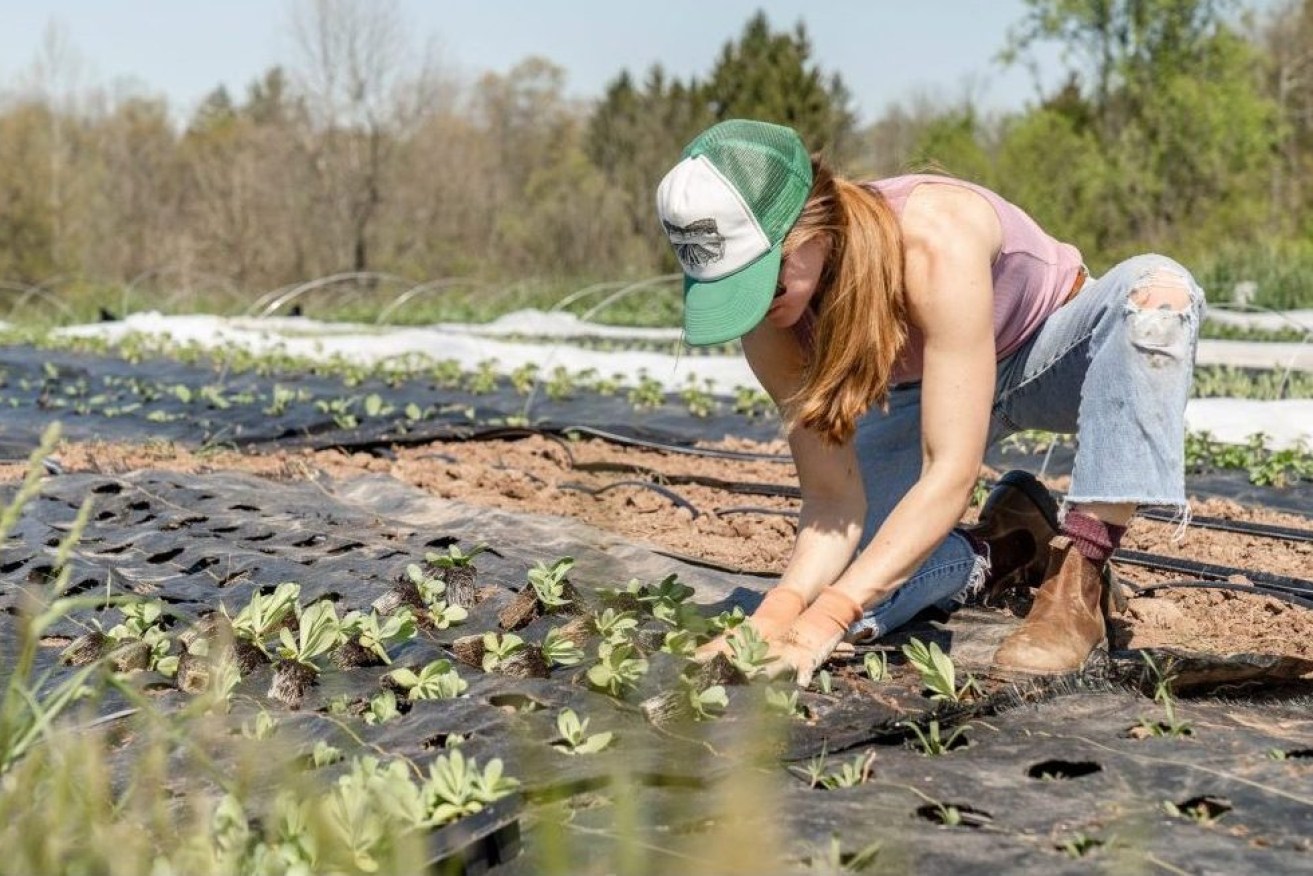Rotten apples: How rogue farmers undermine efforts to close worker gap
Farming groups are clinging to the idea that school-leavers on gap years will resolve the farm labour crisis, as a slew of alleged sexual harassment and wage theft crimes undermine efforts to fill chronic worker shortages.


Farmers have been offered bargaining lessons to reduce their farm gate losses.. (Photo: Zoe Schaeffer on Unsplash).
Chronic shortfalls in workers to pick ripening fruit and vegetables on Queensland farms are forecast to worsen from next month, rising to a peak of 9000 full time equivalent positions unfilled in July.
The modelling unveiled in Parliament last month by Agriculture Minister Mark Furner revealed farmers in the state’s horticulture sector would feel the pinch from May, with experts also warning of dramatic price rises for fresh produce at the retail counter as lower volumes of food are channelled through the supply chain.
The forecast’s predicted timing comes as the Queensland Farmers Federation goes on the offensive to attract school-leavers into farm labour in a bid to replace foreign ‘backpackers’ locked out by international travel bans since the start of the coronavirus pandemic.
The organisation has released a report this week aiming to “identify and dispel common myths” that may be deterring young Australians to devote their ‘gap year’ to casual farm labour.
The QFF report, based on a survey of school-leavers, identified the location of farms as the biggest barrier to recruitment, with more than half the respondents citing a belief that they live too far away from agricultural employers.
QFF CEO Georgina Davis said almost a third of respondents attributed not finding any agricultural jobs as a key reason for them not engaging in gap year agricultural employment, while a quarter of all respondents believed that agriculture was a low paying industry when compared to employment alternatives including hospitality and retail.
Her assessment follows a report released by Unions NSW this month concluding that young people were rejecting opportunities in the sector due to poor wages and conditions.
The report aligns with the views of several academic studies into worker exploitation in the horticulture industry, including a University of Southern Queensland research project in the Lockyer Valley that was highlighted by InQueensland last year.
Last week, the ABC exposed further horrific treatment of farm workers, with reports of alleged sexual harassment of multiple women at a farm in north Queensland near Mareeba.
The National Farmers’ Federation has responded to both issues, with CEO Tony Mahar describing the alleged incidents in north Queensland as “horrifying” and calling for employers who rip-off workers to be held to account.
He said the NFF took seriously its role in ensuring workers had a positive experience on Australian farms and was developing a program to make clear that the sector would not tolerate sexual harassment and to ensure farm employers understood and discharged their legal and ethical obligations.
“The program is intended to drive cultural and behavioural change in the farm workplace. The NFF has also reached out to the Sex Discrimination Commissioner to have input into this important initiative,” he said.
“As a nation we are in the midst of an important time reflecting on and importantly taking action to ensure women are safe, are treated with respect and are valued.
“This conversation is happening at dinner tables, in schools and in workplaces across Australia and the agriculture sector is no exception.”
Mahar said workers who believed they had been underpaid should report their concerns to the Fair Work Ombudsman.
“The large majority of farmers do the right thing. They want workers to enjoy their job and value the farmer-worker partnership in putting food on shelves, fuelling the economy and sustaining regional communities,” he said.
“Operators who don’t uphold the law are not only ripping off workers, but are also letting down their industry, at time when many are facing a dire workforce shortage. They must be held to account.”
Davis said Australian Bureau of Statistics production data identified that gap year takers live far closer to an agricultural employer than they often believe, and that earning capacity and job vacancies were bigger in scale than most other sector of the economy.
“A better hourly wage can be earned by individuals working in the agriculture industry, and agriculture employees can work comparatively more hours than those in other industries increasing their earning potential,” she said.








